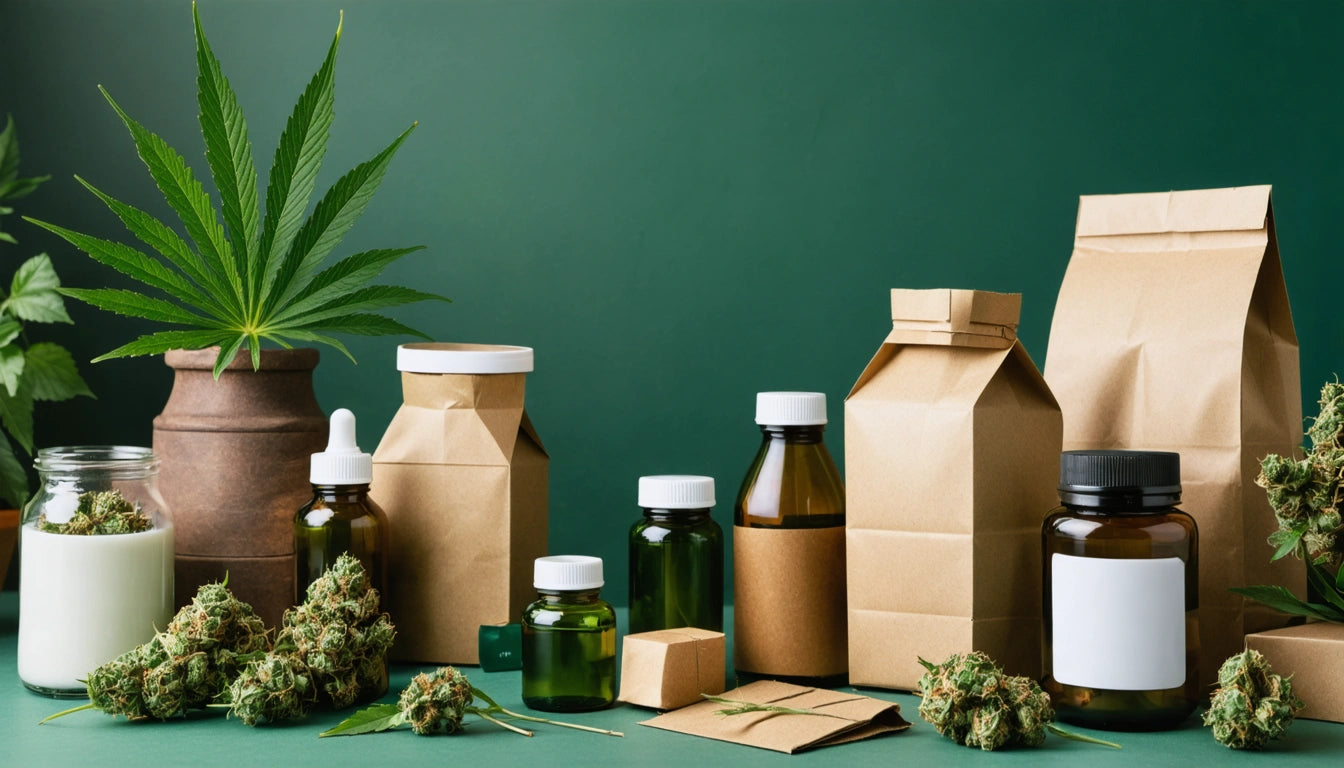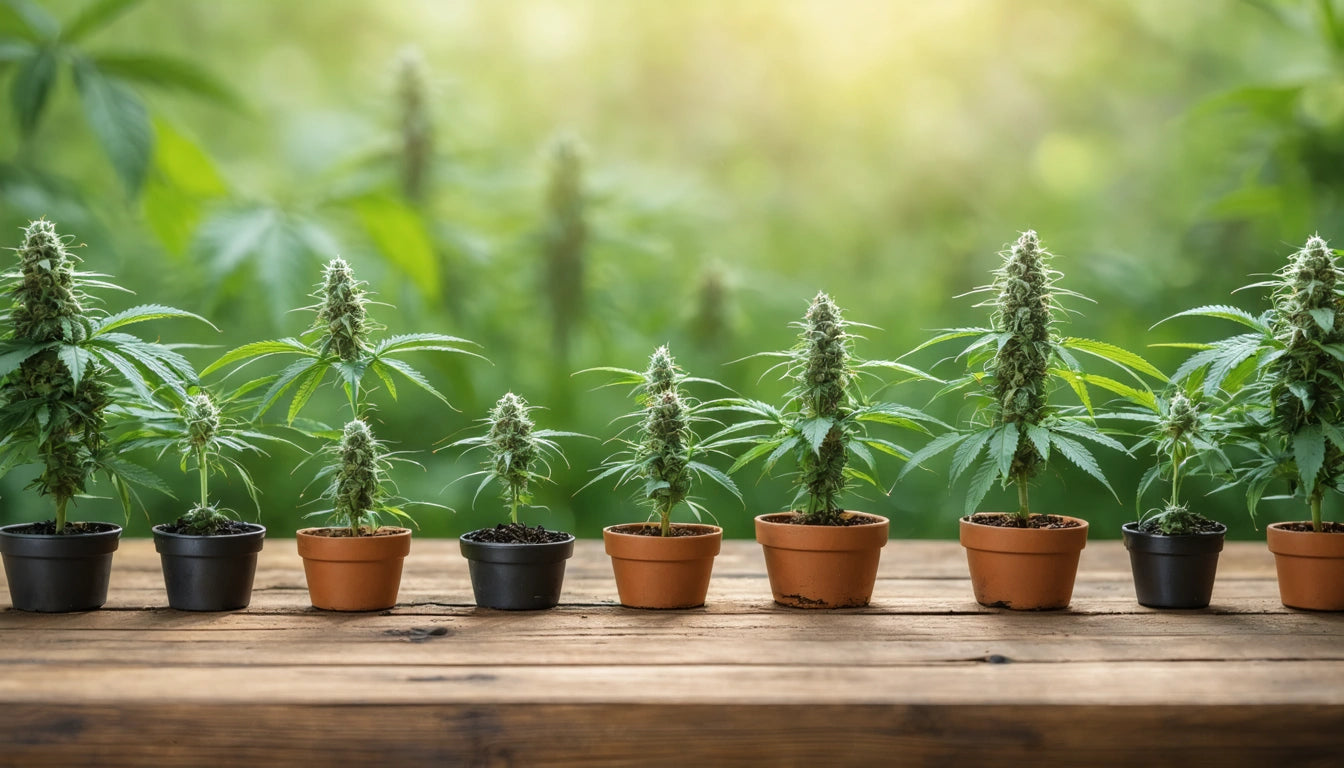Table of Contents
Private label cannabis packaging offers brands the opportunity to create custom packaging solutions that align with their brand identity while potentially reducing costs. As the cannabis industry matures, more companies are exploring private label options to differentiate themselves in an increasingly competitive market. This comprehensive guide explores the benefits and considerations of private label packaging for cannabis businesses.
Understanding Private Label Cannabis Packaging
Private label packaging refers to custom-designed packaging manufactured exclusively for your brand. Unlike generic or stock packaging, private label solutions feature your brand's unique design elements, color schemes, and messaging. This approach allows cannabis businesses to create consistent brand experiences across their product lines while maintaining control over quality and appearance.
Private label differs from fully custom packaging in that it often utilizes existing structural designs with customized graphics and branding elements. This balance provides a cost-effective middle ground between generic and fully bespoke packaging solutions.
Key Benefits of Private Label Cannabis Packaging
Brand Differentiation and Recognition
In a crowded marketplace, distinctive packaging helps products stand out on dispensary shelves. Private label packaging creates visual consistency that strengthens brand recognition and builds consumer trust. As outlined in this guide on balancing branding and cost, even subtle customizations can significantly impact consumer perception.
Cost Efficiency at Scale
When ordered in sufficient quantities, private label packaging often costs less per unit than purchasing pre-made stock packaging. According to this resource on minimum order quantities, reaching MOQ thresholds for private label can unlock substantial savings, especially for established brands with predictable sales volumes.
Improved Product Protection and Preservation
Custom packaging can be tailored to specific product requirements. For flower products, incorporating humidity control solutions into your packaging design ensures product freshness and extends shelf life, providing additional value to both retailers and consumers.
Important Considerations Before Investing
Compliance Requirements
Private label packaging must still meet all regulatory requirements in your operating markets. As detailed in this article on multi-state operations, packaging compliance varies significantly between jurisdictions. Your private label design must accommodate these variations without compromising brand consistency.
Minimum Order Quantities
Private label packaging typically requires larger minimum orders than stock options. Before committing, carefully assess your sales projections using methods outlined in this forecasting guide to avoid overbuying or cash flow constraints.
Lead Times and Production Schedules
Custom packaging requires longer lead times than off-the-shelf solutions. Understanding how lead times work for wholesale cannabis packaging is essential for maintaining inventory without disruptions to your production schedule.
Building Strong Supplier Relationships
Successful private label packaging depends on strong supplier partnerships. When vetting potential partners, consider their:
- Experience with cannabis-specific packaging requirements
- Quality control processes and certifications
- Capacity to scale with your business growth
- Financial stability and reliability
- Communication practices and responsiveness
Building long-term supplier relationships through clear contracts and service level agreements (SLAs) provides stability and can lead to preferential treatment during supply chain disruptions.
Logistics and Inventory Management
Managing private label inventory requires sophisticated logistics planning. Implementing proper storage protocols prevents damage to packaging materials, while establishing standard operating procedures for procurement ensures consistent quality and availability.
When considering domestic versus international suppliers, weigh factors such as shipping costs, tariffs, and lead times. This comparison of domestic and overseas manufacturers highlights important trade-offs that impact total cost of ownership.
Future-Proofing Your Private Label Packaging Strategy
As the cannabis industry evolves, your packaging strategy should anticipate future needs. Consider designing packaging that can accommodate regulatory changes, incorporating sustainable materials that align with consumer preferences, and building flexibility into your supply chain.
Developing contingency plans for supply disruptions, as outlined in best practices for avoiding supply chain disruptions, protects your operations from unexpected challenges. Additionally, regularly reviewing your packaging performance metrics helps identify opportunities for continuous improvement in both cost efficiency and brand impact.
By carefully weighing these benefits and considerations, cannabis businesses can develop private label packaging strategies that enhance their brand presence while optimizing operational efficiency and cost-effectiveness.











Leave a comment
All comments are moderated before being published.
This site is protected by hCaptcha and the hCaptcha Privacy Policy and Terms of Service apply.